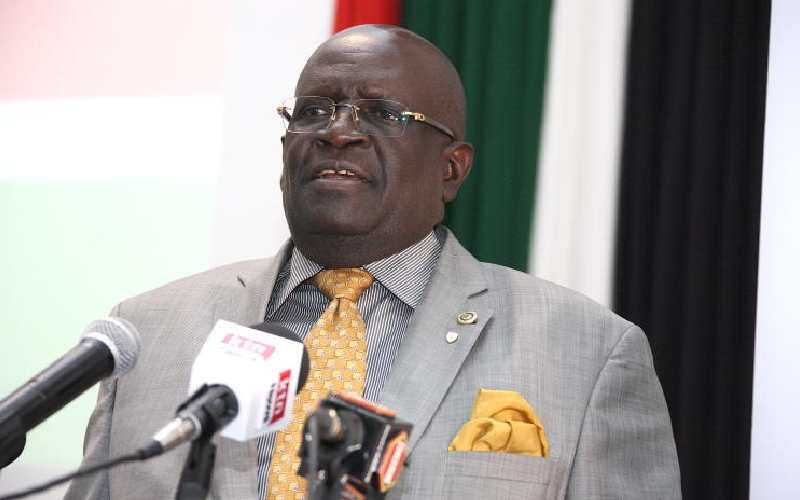×
The Standard e-Paper
Smart Minds Choose Us

Cabinet Secretary Ministry Of Education Prof. George Magoha speaking during the National launch of re-engineered national education management information system (NEMIS) on August 2, 2022. [Wilberforce Okwiri, Standard]
To promote inclusive and sustainable national development, create more decent jobs and improve living standards, the new government has crafted an appropriate and well-timed education sector strategic development plan.